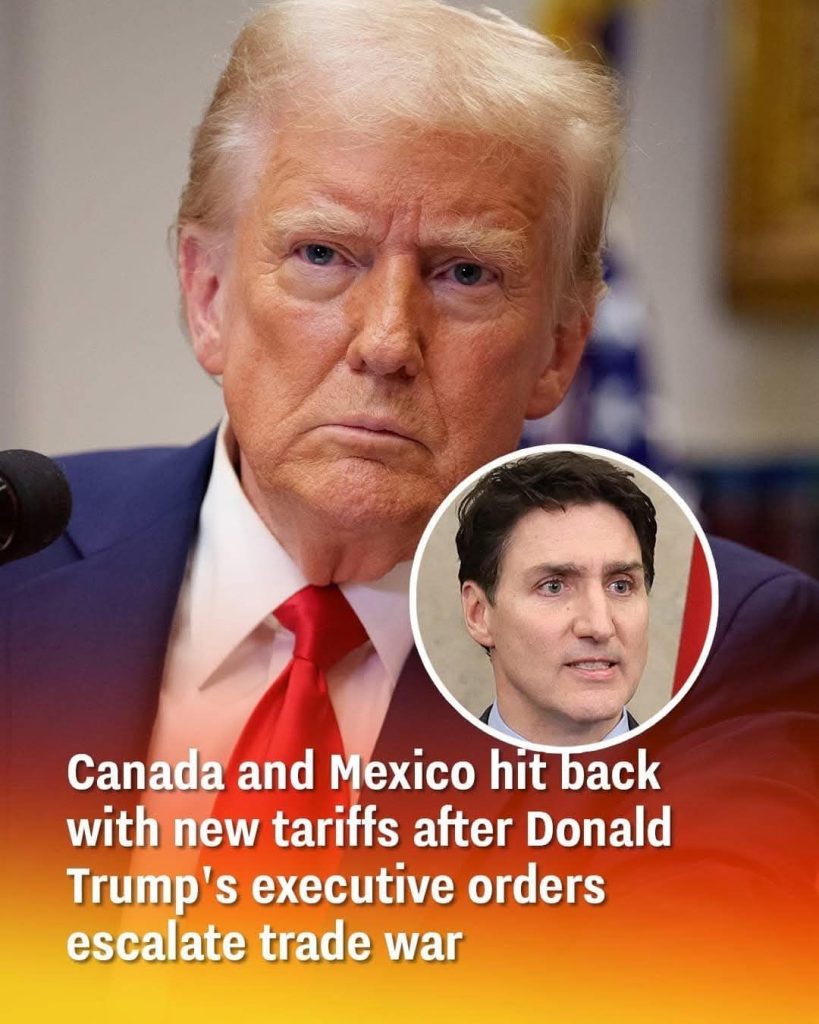After President Donald Trump imposed hefty tariffs, Canada and Mexico responded with retaliatory measures. Canadian Prime Minister Justin Trudeau warned that these actions would have “real consequences for the American people.”
Since his return to the White House, Trump has implemented significant policy shifts, including sweeping immigration and passport reforms, setting a record for executive orders signed.
His administration has also raised import duties on major trade partners, with tariffs on Chinese goods set at 10%, while imports from Canada and Mexico now face a 25% tax.
Unsurprisingly, officials from China, Mexico, and Canada have strongly opposed these measures.
Ahead of the tariff announcement on Saturday, February 1, Trudeau stated, “We’re ready with a response—a purposeful, forceful, but reasonable and immediate response.”
Mexican President Claudia Sheinbaum echoed this sentiment at a press conference on Friday, January 31, declaring, “We have Plan A, Plan B, and Plan C, depending on what the U.S. government decides.”
“It is crucial for the people of Mexico to know that we will always defend our dignity, uphold our sovereignty, and engage in dialogue as equals—without subordination,” Sheinbaum emphasized.

By Saturday night, both Canada and Mexico had unveiled counter-tariffs directly targeting Trump’s executive orders.
Canada announced a 25% tax on $155 billion worth of U.S. goods.
“This will have real consequences for you, the American people,” Trudeau reiterated in his speech on Saturday.
“The White House’s actions are driving us apart rather than bringing us together,” he added.
Meanwhile, Sheinbaum took to Twitter to instruct her economic minister to take decisive steps to protect Mexico’s interests.
She also denounced the White House’s accusations linking the Mexican government to criminal organizations, calling them baseless.
“If the U.S. government truly wanted to address the fentanyl crisis within its borders, it would crack down on drug sales in its major cities and curb the money laundering that fuels this illicit trade—issues they have failed to address,” Sheinbaum wrote.


